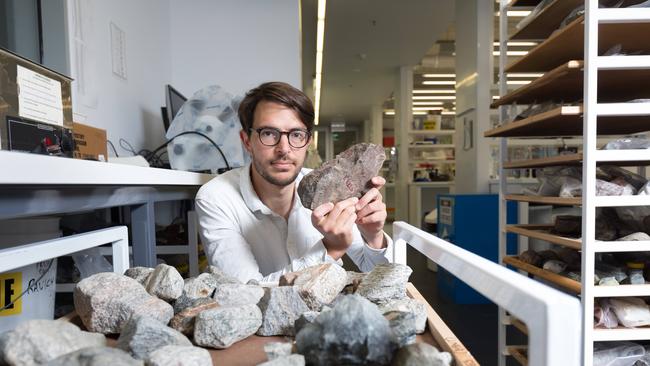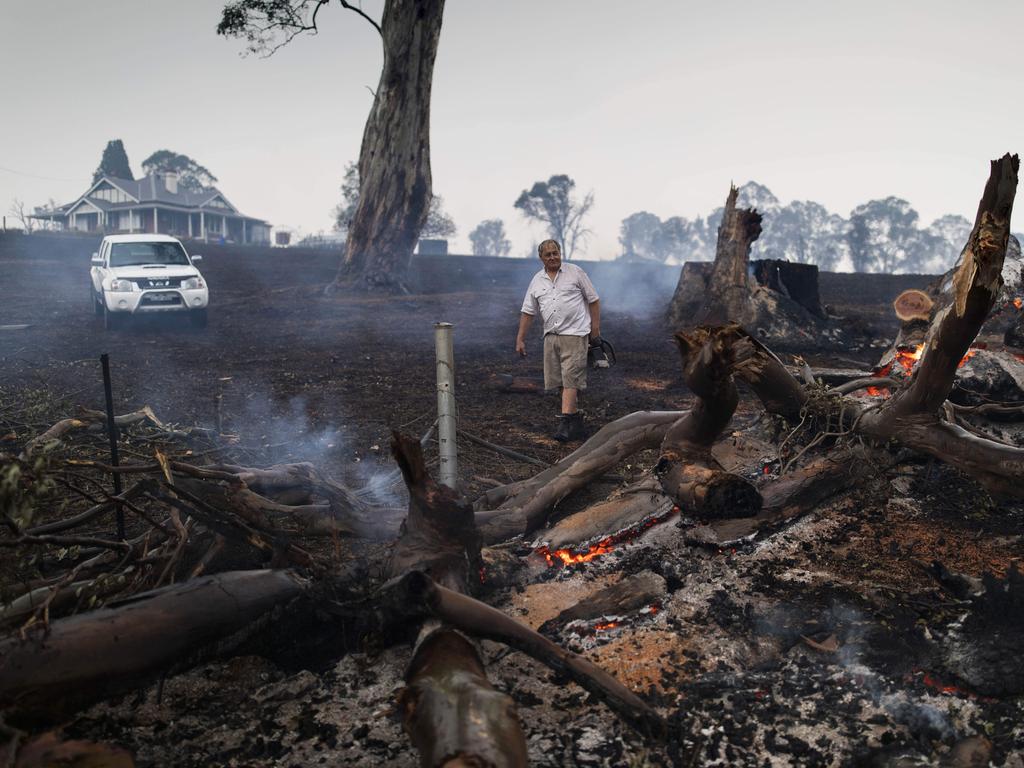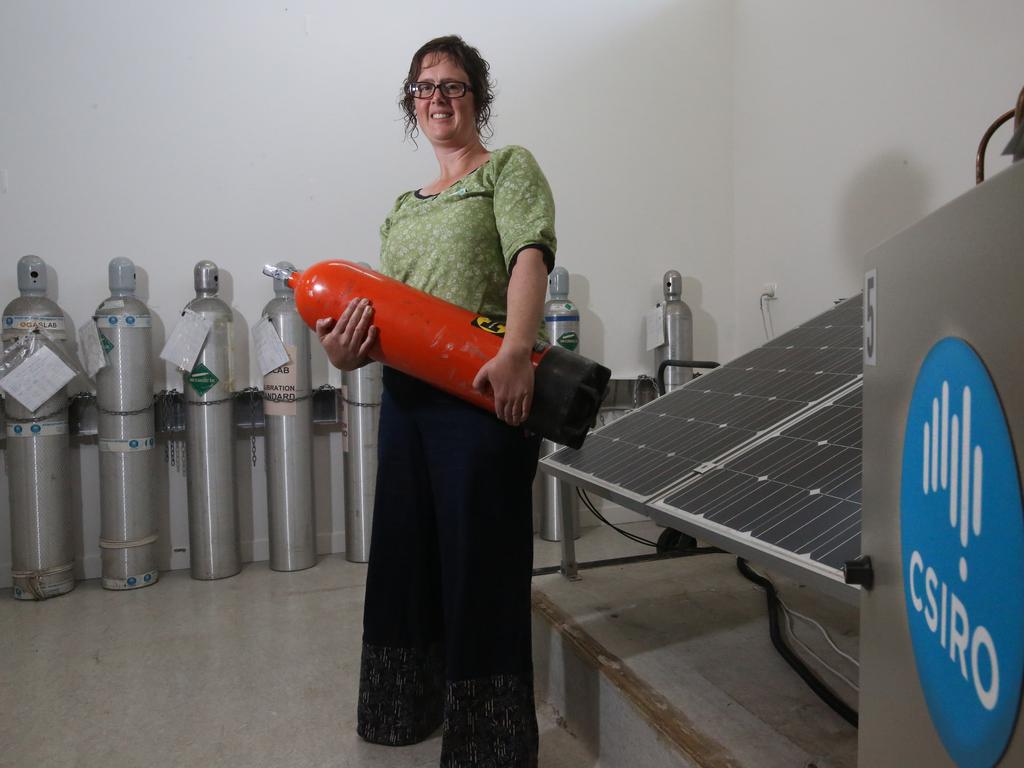A smashing idea for man on emission
Could removing carbon dioxide from the atmosphere be as simple as pulverising rocks and spreading them around?

Could removing carbon dioxide from the atmosphere be as simple as pulverising rocks and spreading them around?
It is a strange yet serious scientific question the Morrison government is spending almost $800,000 to explore, via world-first research with global implications.
The concept, to be probed further by the Hobart-based Institute for Marine and Antarctic Studies from early 2021, is known as “enhanced weathering”.
It aims to speed-up the natural weathering of certain volcanic rocks, turbocharging chemical reactions that absorb CO2 from the atmosphere.
“These rocks dissolve (naturally via weathering) but very slowly, whereas powder, because it has so high surface (areas), dissolves much quicker,” explains Lennart Bach, IMAS marine biogeochemist.
“So it involves grinding up volcanic rock minerals and distributing them over agricultural land or the oceans.”
On farmland or near the ocean surface, the powdered rock would quickly dissolve, interacting with the atmosphere and in the process absorbing CO2.
Dr Bach’s work, funded by the Australian Research Council, seeks to pin down the potential side-effects, positive and negative.
One known plus from spreading volcanic rock powder on agricultural land is soil improvement.
“You could enhance crop yields because the minerals used in this are valuable fertilisers. By adding these minerals you could counteract the acidification of soils, while they also increase the pest resistance of crops. It could be a game-changer.”
Spreading this CO2-absorbing rock powder on the surface of our oceans would be more complex and potentially problematic.
“Just distributing powder on the ocean means much of it will just sink, meaning it’s not in contact with the atmosphere any more,” Dr Bach says.
Distribution in shallower, high mixing ocean areas may be a better alternative, or on beaches, where intense wave action would assist dissolution and exposure to the atmosphere.
One promising concept is to combine enhanced weathering with the electrolysis used in hydrogen power generation.
“You could couple it with electrolysis to speed up the chemical weathering reaction that leads to the CO2 absorption,” Dr Bach says.
“That could be a really good double whammy; two big benefits, including ultra-green hydrogen.”
The key issue to be tested in the research is the impact on marine life of adding the rock powder to oceans, particularly minerals with harmful trace metals.
“There could be local fertilising effects, also, which could be positive if you enhance fisheries, but could be negative if it leads to eutrophication (excessively rich nutrients) and oxygen depletion.”








To join the conversation, please log in. Don't have an account? Register
Join the conversation, you are commenting as Logout